Factual data: Israel has made significant progress in green building practices over the years. In 2005, the country introduced its voluntary Green Building Standard, IS-5281, which was based on a point rating system. This standard initially covered new residential and office buildings, but a revised version was approved in 2011, with the help of the British office that wrote BREEAM. The revised standard included new buildings and buildings under significant renovation.
In recent years, the Israeli Green Building Standard has been implemented on a larger scale, with a significant increase in the number of building plans being approved based on green building standards. In 2019, four out of ten building plans, representing 70,000 housing units, were approved on condition that they meet green building standards. This is a significant increase compared to 2018 when only 26% of building plans were approved based on green building standards.
The Israeli Standard for Green Building, No. 5281, covers various types of buildings, including residential, office, healthcare, public, commercial, education, and tourism buildings. It focuses on areas such as energy, land, water, building materials, health and welfare of building users, waste, transportation, building site management, and innovation. A building is considered ‘green’ if it meets the minimal requirements for each category and additional preconditions to minimize its environmental footprint. The standard has five levels, ranging from one star to five stars.
The implementation of green building standards has been driven by a group called the Forum of 15, which represents 15 large cities in Israel and was established in 2013. This group has played a key role in promoting green building standards and increasing their adoption in building plans.
Israel has recognized the importance of energy efficiency in buildings and has implemented various standards and regulations to address this issue. These include standards on thermal insulation, air conditioning, cooling, and window certification. The country has also passed laws to regulate energy distribution, consumption, and sources. The goal of these measures is to reduce energy consumption and promote sustainable practices in the construction and operation of buildings.
Key Takeaways:
- Israel introduced the voluntary Green Building Standard, IS-5281, in 2005.
- The revised version of the standard, approved in 2011, included new buildings and buildings under significant renovation.
- In 2019, four out of ten building plans in Israel were approved based on green building standards.
- The Israeli Standard for Green Building covers various building types and focuses on energy, land, water, and other sustainable aspects.
- The Forum of 15, representing 15 large cities in Israel, has played a significant role in promoting green building standards.
- Israel has implemented energy efficiency standards and regulations to reduce energy consumption in buildings.
The Introduction of Green Building Standards
The journey towards green building in Israel began in 2005 with the introduction of the voluntary Green Building Standard, IS-5281. This standard, which was based on a point rating system, initially covered new residential and office buildings. However, in 2011, a revised version of the standard was approved with the assistance of the British office that wrote BREEAM. This revised version expanded the scope of the standard to include new buildings and buildings undergoing significant renovation.
The implementation of green building standards has been a significant milestone in Israel’s commitment to sustainability. These standards provide guidelines and criteria that developers and builders must meet to ensure sustainable and eco-friendly construction practices. By adhering to green building practices, developers can reduce the environmental impact of their projects, promote energy efficiency, and utilize renewable materials.
The Israeli Green Building Standard, IS-5281, has played a vital role in shaping the country’s green building movement. It provides clear guidelines across various categories, including energy, land, water, building materials, health, and welfare of building users, waste management, transportation, building site management, and innovation.

The standard categorizes buildings into five levels, based on their adherence to the guidelines. A building is considered ‘green’ if it meets the minimum requirements for each category and satisfies additional preconditions to minimize its environmental footprint. This comprehensive approach ensures that all aspects of sustainability are addressed, from energy efficiency to waste management and beyond.
The Role of BREEAM
During the revision process of the Israeli Green Building Standard, the British office that wrote BREEAM played an influential role. BREEAM, which stands for Building Research Establishment Environmental Assessment Method, is a widely recognized and respected green building certification scheme. Its expertise and experience in promoting sustainable design and construction practices were instrumental in shaping the revised version of the Israeli Standard, making it more encompassing and comprehensive.
The partnership between Israel and BREEAM highlights the collaborative nature of the global green building movement. By leveraging the knowledge and best practices from different countries and organizations, Israel has been able to create a robust and effective framework for sustainable building practices.
| Benefits of Green Building Standards |
| Reduces environmental impact |
| Promotes energy efficiency |
| Utilizes renewable materials |
| Improves indoor air quality |
| Enhances occupant health and well-being |
Increasing Implementation of Green Building Standards
The implementation of green building standards in Israel has gained momentum, with a substantial increase in the number of building plans approved based on sustainability criteria. In recent years, there has been a significant rise in the number of building plans that meet green building standards, indicating a growing commitment to environmental responsibility and sustainable construction practices.
In 2019, approximately 40% of building plans in Israel, representing 70,000 housing units, were approved on the condition that they meet green building standards. This marks a substantial increase compared to the previous year, where only 26% of building plans met sustainability criteria. The rise in approved plans showcases the increasing importance placed on eco-friendly construction and the desire to minimize the environmental impact of new developments.
The Israeli Green Building Standard, No. 5281, has played a significant role in driving the adoption of green building practices. The standard covers various types of buildings, including residential, office, healthcare, public, commercial, education, and tourism. It encompasses key areas such as energy, land, water, building materials, health, waste management, transportation, and innovation. By meeting the minimal requirements for each category and additional preconditions, buildings can achieve a ‘green’ status, contributing to a more sustainable built environment.
The implementation of green building standards in Israel has been driven by the Forum of 15, a group representing 15 large cities in the country. Established in 2013, this influential group has been instrumental in promoting and advocating for green building practices. Through their efforts, the adoption of green building standards has become more widespread, leading to an increase in the number of sustainable building plans being approved.
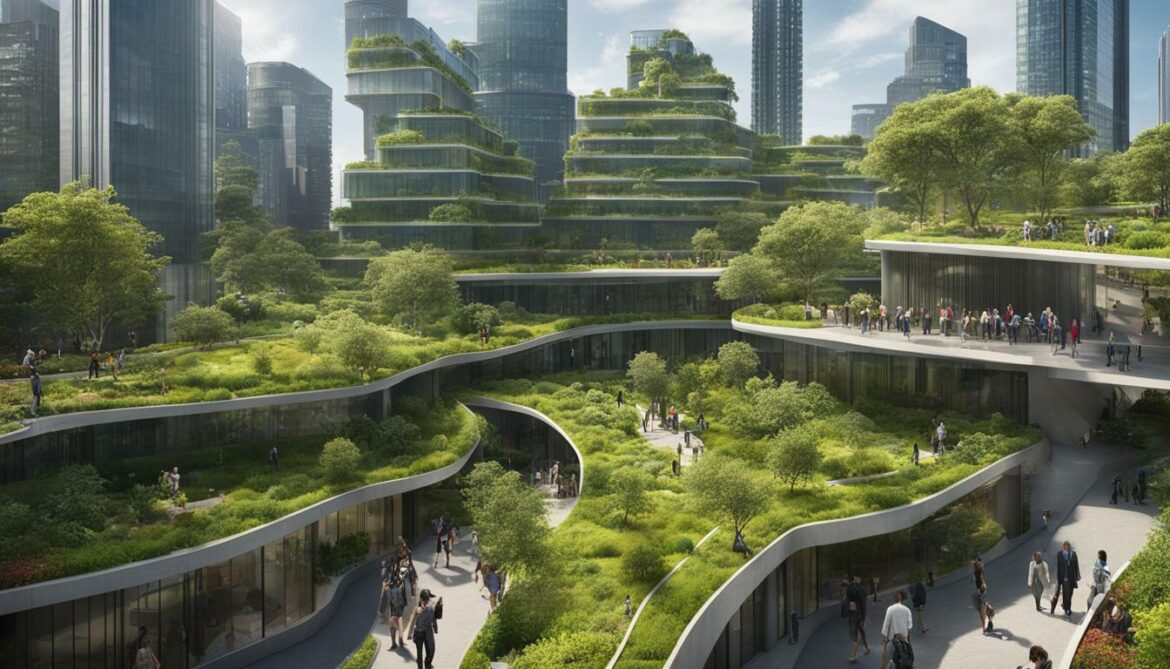
Table: Increase in Number of Building Plans Approved based on Green Building Standards
| Year |
Percentage of Approved Plans (Green Building Standards) |
| 2018 |
26% |
| 2019 |
40% |
The Israeli Standard for Green Building (No. 5281)
The Israeli Standard for Green Building, No. 5281, encompasses a wide range of building types and lays out comprehensive criteria across multiple sustainability categories. This standard covers various types of buildings, including residential, office, healthcare, public, commercial, education, and tourism buildings. It sets guidelines and requirements for achieving green status in these buildings, focusing on areas such as energy, land, water, building materials, health and welfare of building users, waste, transportation, building site management, and innovation.
To meet the standard’s criteria, a building must meet the minimal requirements for each category and additional preconditions to minimize its environmental footprint. The standard has five levels, ranging from one star to five stars, representing increasing levels of sustainability and environmental performance.
By incorporating the Israeli Standard for Green Building into their projects, builders and developers can contribute to the overall sustainability goals of the country. This standard encourages the use of renewable materials, energy efficiency measures, and innovative design solutions to create buildings that have a reduced impact on the environment while providing healthy and comfortable spaces for occupants.
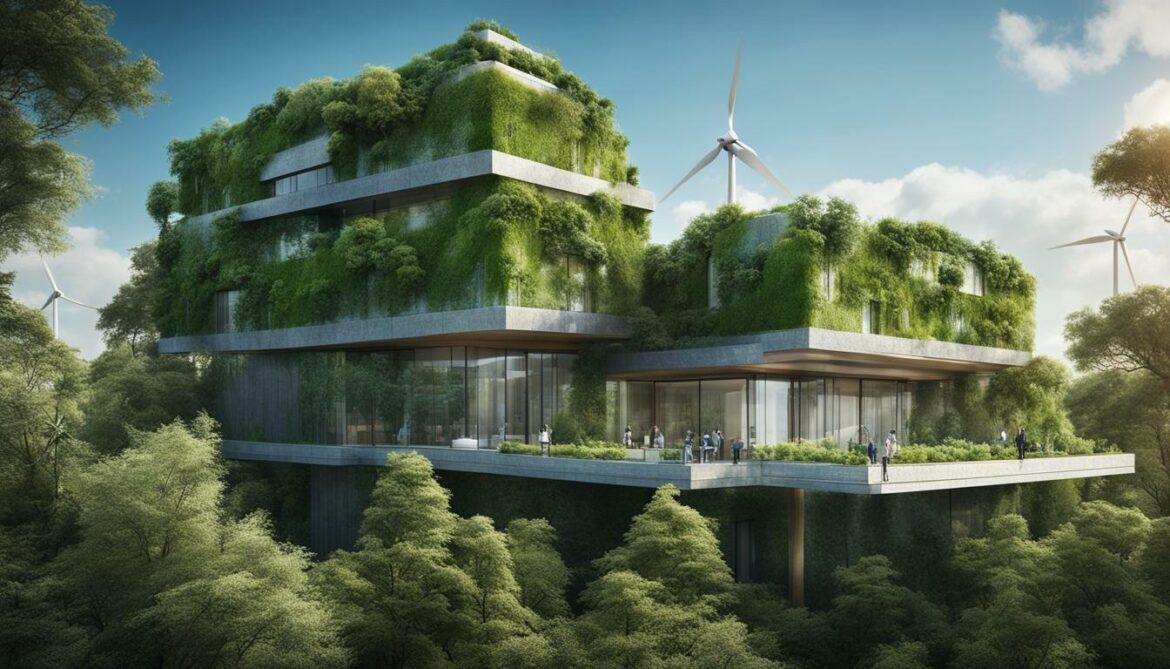
Implementing the Israeli Standard for Green Building is not only beneficial for the environment but also for building owners and occupants. Green buildings have been shown to have lower energy costs, improved air quality, and increased occupant satisfaction. Additionally, these buildings often qualify for green certifications, such as LEED or BREEAM, which can enhance their marketability and attract environmentally conscious tenants and investors.
| Benefits of Implementing the Israeli Standard for Green Building: |
| Reduced energy consumption |
| Lower operating costs |
| Improved indoor air quality |
| Enhanced marketability and value |
| Positive impact on occupant health and well-being |
Overall, the Israeli Standard for Green Building (No. 5281) serves as a guiding framework for sustainable design and construction practices in Israel. By adhering to the criteria and principles outlined in this standard, the country continues to make significant progress towards a more environmentally friendly and energy-efficient built environment.
The Forum of 15 and its Role
The Forum of 15, comprising major cities in Israel, has been a driving force in promoting and adopting green building standards throughout the country. This group, established in 2013, has played a crucial role in advocating for sustainable practices in building plans and has made significant contributions to the green building movement.
By collaborating and sharing best practices, the Forum of 15 has been instrumental in raising awareness about the benefits of green building standards. Through their collective efforts, they have succeeded in increasing the adoption of these standards in building plans, leading to a more sustainable and environmentally conscious built environment.
The Forum of 15 has been actively involved in promoting green building practices among developers, architects, and policymakers. Their commitment to sustainability has resulted in the approval of a significant number of building plans that meet green building standards. In fact, in 2019, four out of every ten building plans, representing 70,000 housing units, were approved based on green building standards.
This increased adoption of green building standards is a testament to the success of the Forum of 15’s initiatives and the growing recognition of the importance of sustainable practices in the construction industry. Their efforts have not only improved the environmental performance of buildings but also enhanced the health and well-being of their occupants.

Energy Efficiency Regulations and Standards
Recognizing the importance of energy efficiency, Israel has implemented a range of regulations and standards aimed at promoting sustainable practices in building construction and operation. These measures focus on various aspects of energy consumption and environmental impact, ensuring that buildings adhere to specific guidelines to minimize their carbon footprint.
Thermal insulation plays a crucial role in reducing energy waste and improving the overall energy efficiency of buildings. Israel has established strict standards for thermal insulation materials and installation techniques. By effectively insulating buildings, heat transfer is minimized, reducing the need for excessive heating or cooling, and subsequently reducing energy consumption.
“Good quality insulation helps maintain a comfortable indoor temperature throughout the year and reduces the need for continuous heating or cooling, thus saving energy,” explains Dr. Sarah Greenberg, an expert in sustainable architecture.
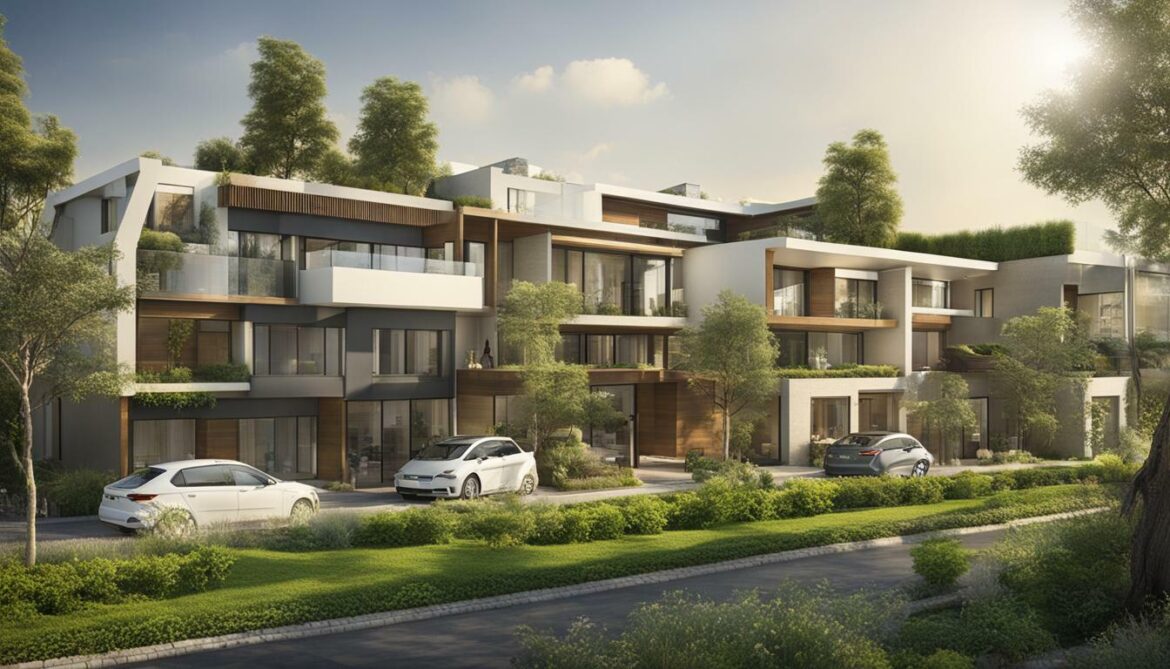
Israel’s standards also address air conditioning and cooling systems, which are significant energy consumers in buildings. The regulations ensure that these systems are energy-efficient, using advanced technologies to minimize energy consumption while maintaining optimal indoor conditions.
The country also emphasizes the importance of window certification to improve energy efficiency. Windows are a key factor in heat gain and loss, directly impacting a building’s energy performance. By using certified windows that meet specific energy-efficient criteria, Israel aims to reduce heat transfer and improve insulation, leading to a decrease in energy consumption.
In addition to these specific regulations, Israel has implemented laws and regulations to govern energy distribution, consumption, and sources. These measures aim to reduce overall energy consumption and promote sustainable practices in the construction and operation of buildings. By encouraging the use of renewable energy sources, such as solar power, and enforcing energy-efficient practices, Israel is taking significant steps towards a greener and more sustainable future.
| Energy Efficiency Measures |
Benefits |
| Thermal insulation standards |
Reduces energy waste, minimizes heating and cooling needs |
| Energy-efficient air conditioning and cooling systems |
Decreases energy consumption while maintaining optimal indoor conditions |
| Window certification |
Improves energy performance by reducing heat transfer |
| Laws and regulations on energy distribution, consumption, and sources |
Promotes sustainable practices and the use of renewable energy |
Conclusion
Israel’s green building journey has witnessed remarkable progress, with a focus on sustainable architecture, environmental innovation, and the adoption of eco-friendly construction practices. The country introduced its voluntary Green Building Standard, IS-5281, in 2005, which laid the foundation for green building practices. Based on a point rating system, this standard initially covered new residential and office buildings. A revised version of the standard was later approved in 2011, with the assistance of the British office that wrote BREEAM, expanding its scope to include new buildings and significant renovations.
In recent years, the implementation of green building standards in Israel has gained momentum. The number of building plans approved based on these standards has seen a significant increase, with 2019 recording the approval of four out of ten building plans, representing approximately 70,000 housing units, on the condition of meeting green building requirements. This surge marks a substantial growth compared to 2018 when only 26% of building plans adhered to green building standards.
The Israeli Standard for Green Building, No. 5281, encompasses various types of buildings, such as residential, office, healthcare, public, commercial, education, and tourism facilities. It addresses crucial areas that contribute to environmental sustainability, including energy, land, water, building materials, health and welfare of building users, waste, transportation, building site management, and innovation. To achieve a ‘green’ status, a building must fulfill the minimum requirements for each category, along with additional preconditions to minimize its environmental impact. The standard is classified into five levels, ranging from one star to five stars, to differentiate the degree of sustainability achieved.
The Forum of 15, established in 2013, has played a pivotal role in driving the adoption and promotion of green building standards in Israel. This influential group represents 15 major cities in the country and has been instrumental in increasing awareness and implementation of sustainable practices in building plans.
Israel has also recognized the significance of energy efficiency in buildings and has implemented various standards and regulations to address this issue. These include guidelines on thermal insulation, air conditioning, cooling, and window certification. Additionally, the country has enacted laws to regulate energy distribution, consumption, and sources. The primary aim of these measures is to reduce energy consumption and foster sustainable practices throughout the construction and operation of buildings.
Israel’s commitment to green building practices is evident through its continuous progress, as reflected in the increasing number of building plans approved based on green building standards. The country’s dedication to energy efficiency and sustainability in the built environment underscores its vision for a greener and more sustainable future.
FAQ
What is the history of green building in Israel?
Green building practices in Israel have made significant progress over the years. The country introduced its voluntary Green Building Standard, IS-5281, in 2005, which was based on a point rating system. This standard initially covered new residential and office buildings, but a revised version was approved in 2011, with the help of the British office that wrote BREEAM. The revised standard included new buildings and buildings under significant renovation.
How has the implementation of green building standards increased in Israel?
In recent years, the implementation of green building standards in Israel has seen significant growth. In 2019, four out of ten building plans, representing 70,000 housing units, were approved on condition that they meet green building standards. This is a substantial increase compared to 2018 when only 26% of building plans were approved based on green building standards.
What does the Israeli Standard for Green Building (No. 5281) cover?
The Israeli Standard for Green Building, No. 5281, covers various types of buildings, including residential, office, healthcare, public, commercial, education, and tourism buildings. It focuses on areas such as energy, land, water, building materials, health and welfare of building users, waste, transportation, building site management, and innovation. A building is considered ‘green’ if it meets the minimal requirements for each category and additional preconditions to minimize its environmental footprint. The standard has five levels, ranging from one star to five stars.
What role does the Forum of 15 play in promoting green building standards in Israel?
The Forum of 15, a group representing 15 large cities in Israel, has played a key role in promoting green building standards and increasing their adoption in building plans. This group has been instrumental in driving sustainable practices and raising awareness about the importance of green building in the country.
What energy efficiency regulations and standards are implemented in Israel?
Israel has implemented various energy efficiency regulations and standards to address the importance of energy efficiency in buildings. These include standards on thermal insulation, air conditioning, cooling, and window certification. The country has also passed laws to regulate energy distribution, consumption, and sources. These measures aim to reduce energy consumption and promote sustainable practices in the construction and operation of buildings.
Source Links



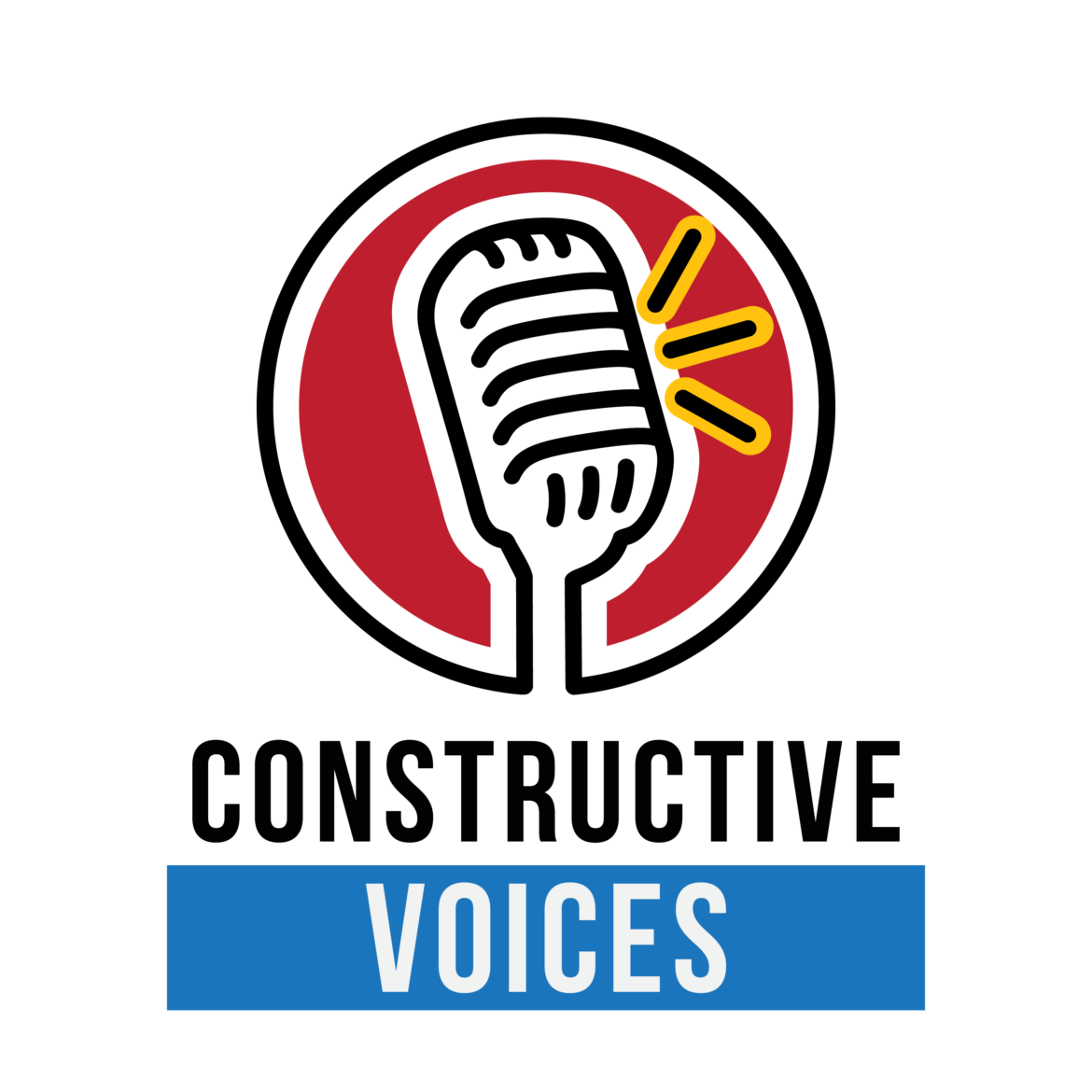


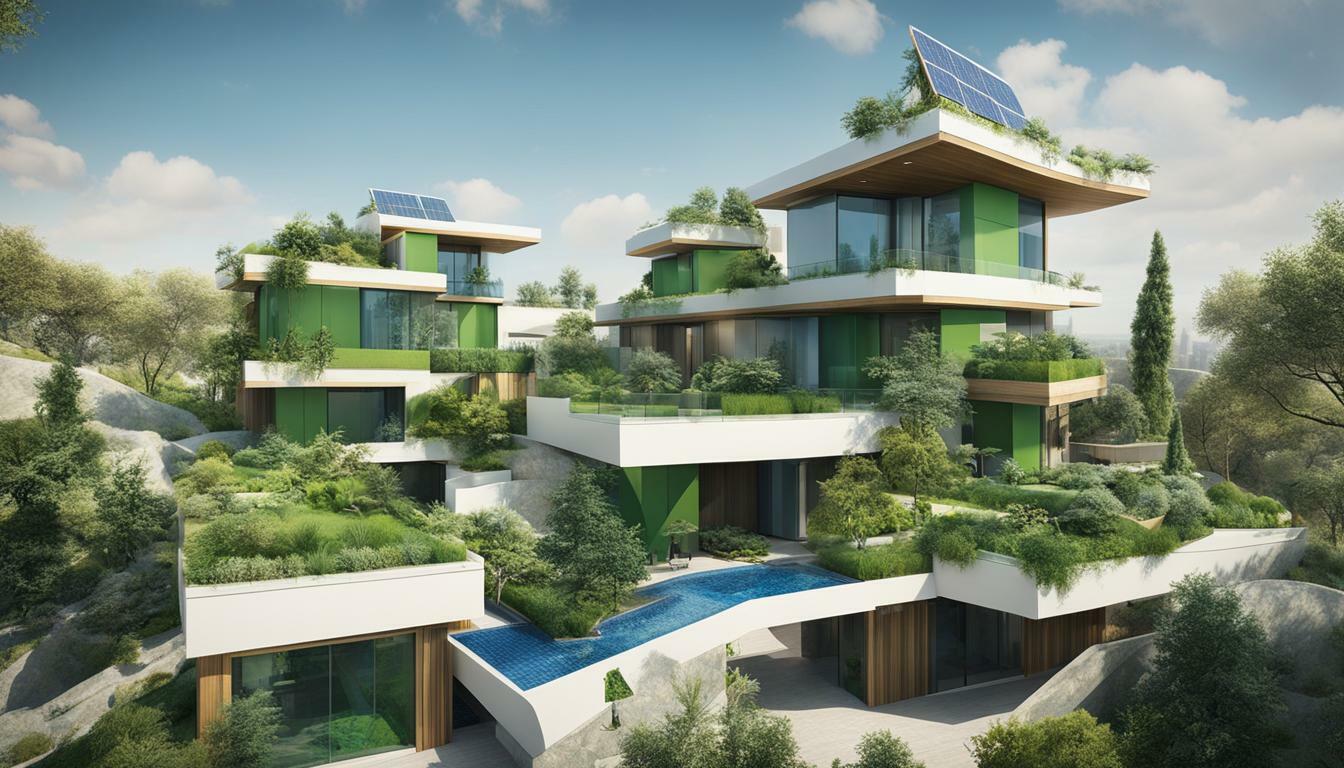





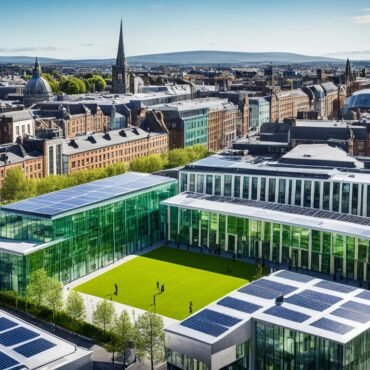
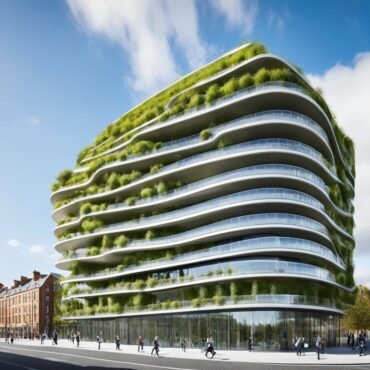




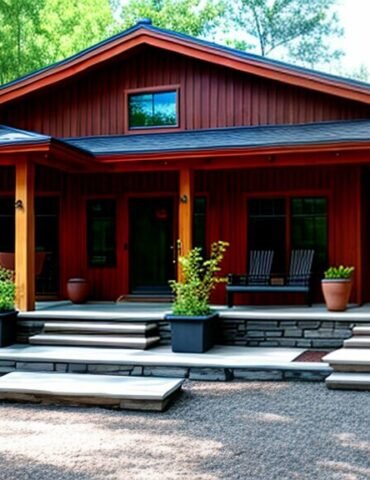




Post comments (0)